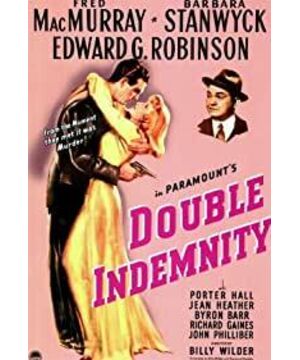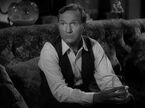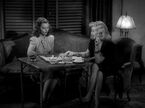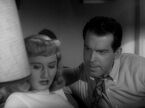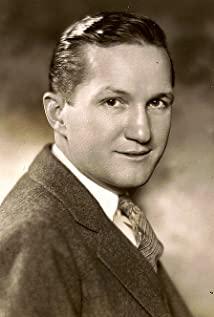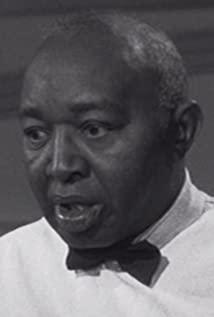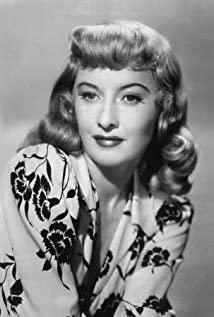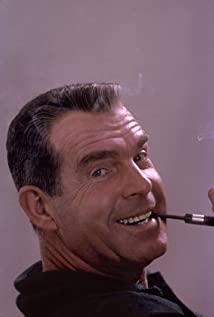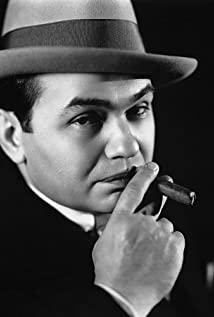The advent of "Double Compensation" did not go smoothly. Not only did Billy Wilder repeatedly frustrate the selection of actors, even his golden partner, co-writer Charles Brackett, refused to participate in the screenwriting because of "the story is too disgusting." Wade had to go to James M. Kane, the author of the "Double Compensation" novel, but Kane had already signed a contract with someone else at this time. Just when Wade had a headache with screenwriting, the producer Systrom I threw a book to him—this is Raymond Chandler’s "Night Long Dreams". After reading "Night Long Dreams", Huaide could not wait to see the author of the book. It was in that situation. At that time, Hollywood's best screenwriter Billy Wilder and Raymond Chandler, who was about to become Hollywood's best screenwriter, had a gorgeous meeting.
Wilder and Chandler started working together. Although Chandler was already a well-known detective novelist at this time, he was completely a rookie in the screenwriting. He participated in the screenwriting of "Double Compensation" only for money, because he hated everything about Billy Wilder—— He can’t bear to call himself "Thunder" instead of "Mr. Chandler". He suspects that there is something wrong with his kidney or genitals because he has to go to the toilet every 15 minutes (even though he is avoiding Chandler in it. He also hated Wyder putting his hat in the office because it made him think he was going out soon. Until many years later, Chandler called his time with Wyder as himself. "The worst time of life". But Wilder tolerated Chandler (at least before the filming of "Double Indemnity", he made a mocking Chandler film "Lost Weekend" immediately after the filming of "Double Indemnity"), and he admired money Deler’s talent also called him “lightning on every page.” He taught Chandler to write a screenwriter, turning him from a rookie into the hottest screenwriter in Hollywood. They get along terribly, but even so, they have teamed up to create one of the greatest screenplays in Hollywood history.
"I killed him for money and for women. I didn't get money or women. I found that I gradually couldn't hear my own footsteps. Is that the footsteps of dead people?" McMurray in "Double Compensation" He read the dialogue written by Chandler in a low voice. The dialogue he wrote made every sentence of a murderer full of poetry, and the lightning on every page of him made the dark scenes of Huaide full of tangles. Chandler is the worst detective story maker ever, and the greatest detective character creator and dialogue writer ever. Regarding the former, the most famous story is that when Howard Hawks and Humphrey Bogart were filming Chandler’s most famous detective novel "Long Dreams", they disputed the cause of the death of a driver in the script, so they went to I asked the screenwriter William Faulkner, who knew Faulkner said he didn’t remember anymore, and finally they had to call Chandler. Chandler’s answer was: "I don’t know, he is dead." Regarding the latter, you only need to read "Double Compensation" to know.
Chandler, who was brought to Hollywood by Billy Wilder, only does two things every day: writing scripts for Hollywood, and writing everything but scripts to mock Hollywood. Later, Chandler stopped writing scripts for Hollywood, but until the day he died, his cynicism with Hollywood did not stop. In 1959, Chandler passed away wearing such a halo: the greatest detective novelist in the history of literature, and the greatest film noir screenwriter in the history of film.
Before "Double Compensation", as a director, Billy Wilde had only made two films that were not too famous. But Wade, who has been writing scripts for Howard Hawkes before, certainly does not know the famous saying of the former: "A good movie requires only three good shots, and no bad shots." Wyder only complied with. After half of this sentence, "Double Indemnity" has all the good shots, and not a single bad shot; therefore, "Double Indemnity" is no longer just a good movie, but a Hollywood movie textbook.
The great thing about Billy Wilder is that he makes a movie about murder go beyond murder, and makes a movie without a naked scene full of sensuality. Before "Double Compensation", people’s only recognition of the manifestation of murder in movies was Hitchcock’s Mac Guffin. However, Billy Wilder made the murderer at the beginning of the movie. Use the first person to calmly tell the truth about your crime. As the plot unfolds, people find that the motives of the insurance salesman and the rich man’s wife have no justice at all, but they are involuntarily worried about them, sweating that they can escape the investigation of "Detective" Case, morality The boundary of the movie was confused and blurred by the dark scenes in the movie. At the last moment when Keith lighted Neff, people had forgotten the murder. They discovered the existence of love between the two men, the murderer and the detective. People hope that Neff will not die, but the American "Hays Code" at the time refused to agree (this code was abolished in the United States in 1966, but it still guides our great GD Directorate), even Billy Wilde Don't agree.
Billy Wilder never concealed the affair between Neff and Phyllis, but he was full of restraint in dealing with this problem (of course also because of the "Hays Code"), we can't see any "behavior lens" "It was just that they were hugging each other, and then the camera turned, Neff was lying on the sofa with his legs up, while Phyllis was lazily applying makeup on the side. Huaide's restraint does not only exist in certain scenes, but is full of the entire movie, so there is no extra shot in "Double Compensation". At that time, Hollywood film critics liked to say "Let me save this movie with a pair of scissors", but no one said this to "Double Compensation".
The ending of the first filming of "Double Compensation" was completely different from now. Neff was tried in court and then locked up in a gas chamber, and Case witnessed all this with his own eyes. But Wilde later changed his mind. He cut off the original ending, and then made up the current one: Neff fell down by the elevator, and Case came over and lit the last cigarette for him—and before that, It's always Neff lighting Case's cigarette.
It was this revision that showed Billy Wild’s amazing talent in screenwriting, so that even the original author of the novel, Kane, had to admit that this was the first time he thought that a novel on the screen was better than a novel on the screen. His original work is even better.
"Double Compensation" won seven Oscar nominations in one fell swoop. That year, Wilder’s rival was Selznik’s "Farewell to the Lord" (now it seems that the two films are not in the same grade at all), the latter of which was published in the newspaper. "In Hollywood, "Farewell" is the most important four words after "Gone with the Wind"" advertisement. Billy Wilder, who has always been good at making funny things, responded in the newspaper: ""Double Compensation" is Hollywood's own The two most important words after "Withered Flowers"." (The English names of these two titles are both two words) Selznick was furious. He vowed to teach Wilder a lesson. At this time, Hitchcock came out. After speaking, he also published an advertisement in the newspaper, which read: "After "Double Indemnity", the two most important words in Hollywood are Billy White."
Obviously, it didn't take long for him to pick up the camera. For Billy Huaide, the master’s approval is far more important than asking for praise and appointing a few Oscar statuettes.
44 years after the completion of "Double Compensation", Spanish director Pedro Almodova went to Los Angeles to promote his "Woman on the Verge of a Nervous Breakdown". He specifically visited Billy Wilder, a life-long Hollywood star Master of film noir, the advice to Almodovar-the only advice is "Never be tempted by Hollywood".
Billy Wilder and Raymond Chandler, who have been incompatible for life, have joined hands again after jointly creating Hollywood's greatest film noir. This time, they betrayed Hollywood together.
View more about Double Indemnity reviews


